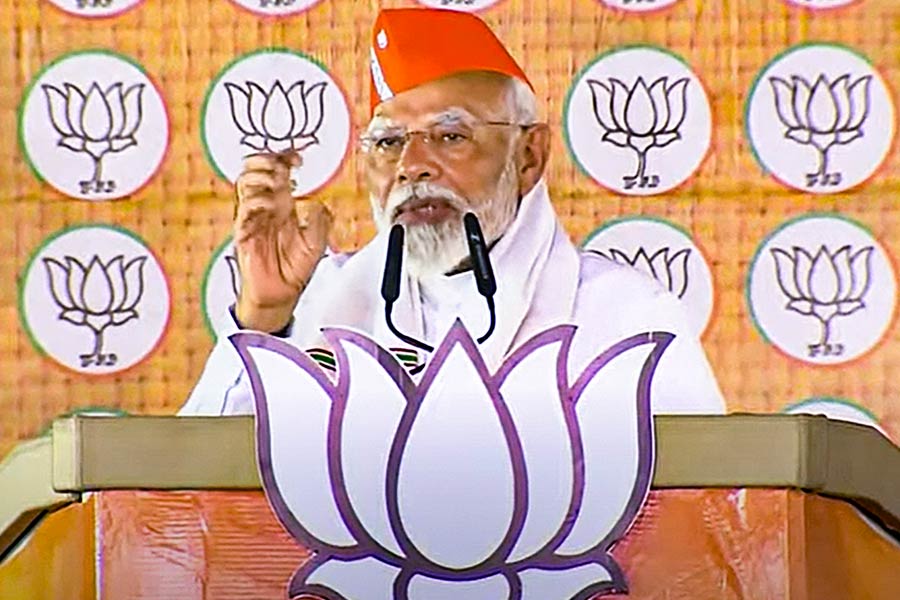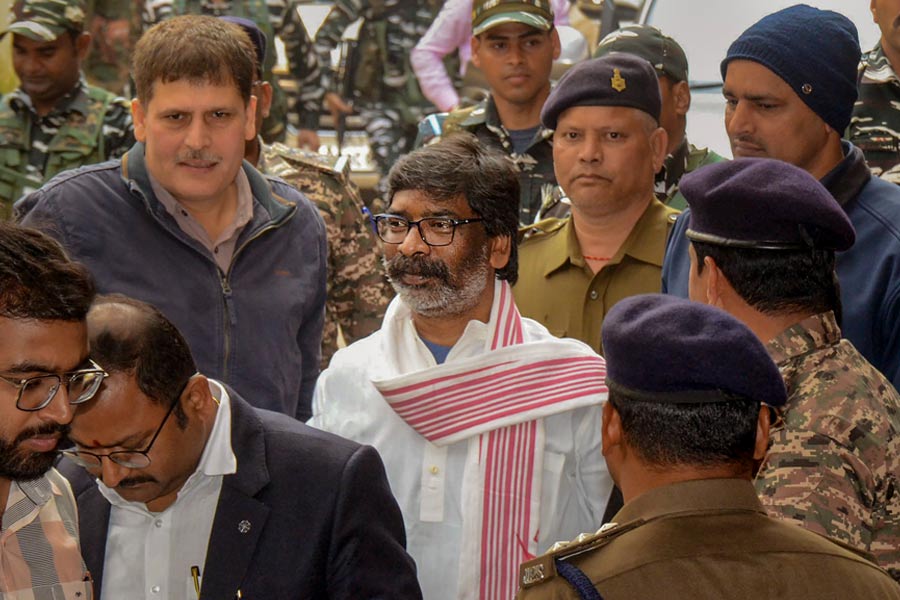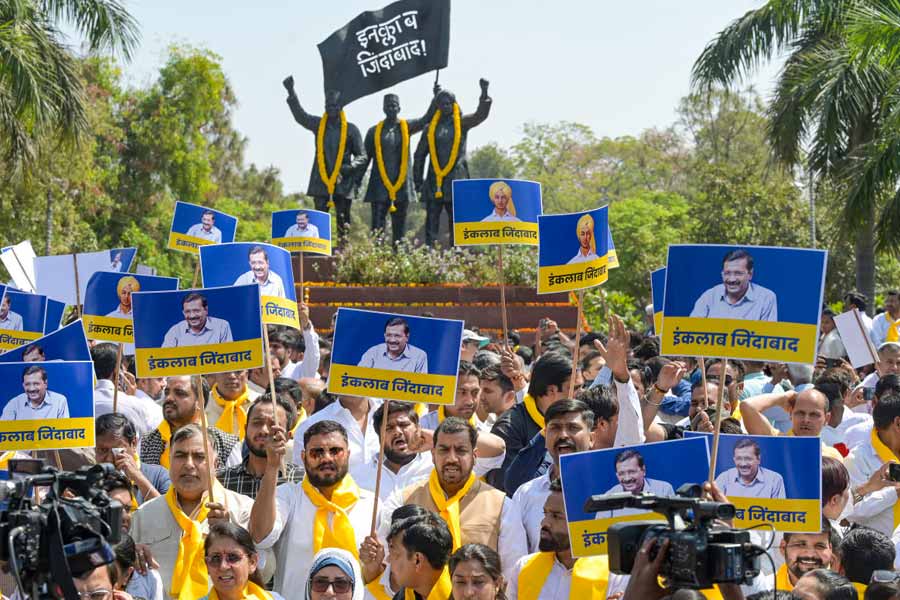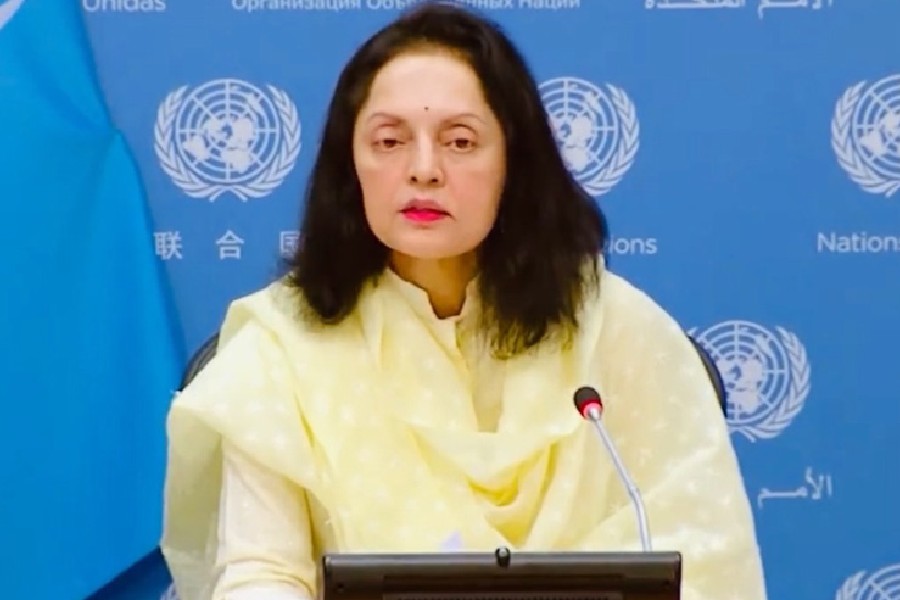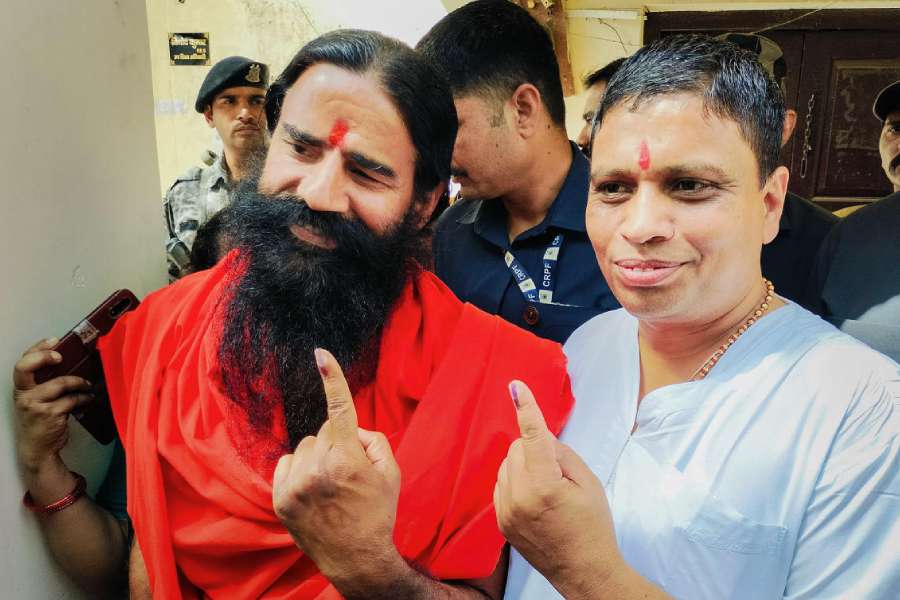Sir — Over-exploitation has pushed fish populations worldwide to the brink. Besides freshwater fish, other aquatic species like crabs, sharks and octopuses are also getting depleted. Human greed has led to the collapse of oceanic food chains. Indiscriminate industrial fishing practices are to blame for this. For instance, boats are equipped with machinery that catches schools of fish along with “bycatch”, species that get caught by chance, accounting for wasteful deaths of countless sea creatures. This needs to be checked before it is too late to save the oceanic ecosystem.
Saikat Kumar Basu,
Lethbridge, Canada
Political piety
Sir — The Calcutta High Court has disposed of the public interest litigation challenging the state government’s decision to give grants to Durga Puja committees (“HC gives go-ahead to Bengal Puja grant”, Oct 11). While the court declined to interfere in the government’s decision, it did ask several important questions before doing so. For instance, how would the state government monitor that the grants were utilized properly by the committees? Does the state make similar donations for festivals of other religions as well?
This is not the first time that the state government has been questioned by the court regarding the use of taxpayers’ money. On another occasion, granting monthly honorariums to imams and muezzins had been termed unconstitutional by the high court. The government should present before the public the source of these doles. It is common people who have to face the consequences of having a cash-strapped government and, as such, they have the right to know about its expenditures.
Ashok Kumar Ghosh,
Calcutta
Sir — It was inappropriate of the chief minister, Mamata Banerjee, to declare donations of Rs 10,000 each to 28,000 Durga Puja committees. This financial assistance will no doubt be carved out from some other allocated area of government expenditure. This is not desirable.
Durga Puja organizers already collect subscription from the residents of the localities concerned, not to mention the sponsorship and advertisement they get from big businesses. Why do they need additional funds? Moreover, this raises questions about secularism.
The money that the exchequer will lose as a result of such doles could have been better utilized for constructing libraries, parks for children and elderly people, distribution of free books to the needy and helpless students and so on.
Samir Chakraborty,
Howrah
Sir — Why should tax-payers pay money to face hassles during the Puja days in the city? That is what the state government’s dole to Puja committees amounts to. More funds means bigger pandals and increased traffic congestion and commuting troubles for common people.
Kinkar Ghosh,
Calcutta
Left to chance
Sir — In the article, “India's parallel penal system” (Oct 12), Prabhat Patnaik takes up the issue of arbitrary arrests by the police in India. Such arrests are a violation of fundamental rights guaranteed by the Constitution. Even more worrying is the allegation against the lower courts that they often do not delve deep enough before pronouncing verdicts, allowing the arrest and the remanding to judicial custody of the accused.
The cases Patnaik discusses are high-profile and, hence, attracted the attention of eminent personalities such as Romila Thapar and were taken up by the apex court. Unfortunately, when common people are arrested, they usually have to languish in jail for long periods before justice is served.
The root of the problem goes deeper than the Unlawful Activities (Prevention) Act or the present dispensation. Successive governments have used draconian British-era laws to silence dissent. If a remedy to arbitrary harassment by the law enforcement agencies is to be found, then both the police and the judges should be made accountable for arrests on flimsy grounds and verdicts that are based on circumstantial evidence respectively. Criticizing select instances of arbitrary arrests to suit particular political agenda will not change anything. The need of the hour is a mass movement to rid the State and its institutions of the ills that ail it at the moment.
Subodh Jha,
Patna
Sir — The article, “Unlawful acts”, highlights the misuse of the UAPA by the Bharatiya Janata Party governments in the states and at the Centre. But it is common knowledge that parties cutting across political lines have run a parallel penal system when in power. The police tend to toe the political line too, owing to a fear of transfers or other administrative punishments.
In the meantime, financial constraints often prevent common people from getting required legal help and they languish in jail as a result. Moreover, many queries under the Right to Information Act go unanswered, lokayukta appointments are delayed, social ostracization has become common for anyone with a dissenting opinion and journalists are being killed for taking a stand. There needs to be an independent ombudsman to hold the highest level of the executive responsible for its actions. This is the only way to ensure that State power is not used to settle political scores.
Basudeb Dutta,
Nadia


